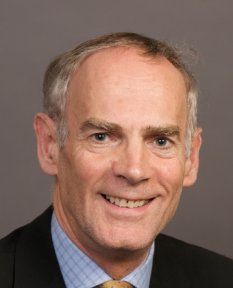WARRINGTON’S schools are to benefit from a £1.7 million “pupil premium” from the Government.
The money is to support pupils from disadvantaged backgrounds and is allocated on the basis of the number of pupils receiving free school meals. It was a key commitment on which the Liberal Democrats fought last year’s General Election – and in Warrington, the Lib Dem leader on the borough council has given it an enthusiastic welcome.
It was a key commitment on which the Liberal Democrats fought last year’s General Election – and in Warrington, the Lib Dem leader on the borough council has given it an enthusiastic welcome.
Cllr Ian Marks (pictured) said schools would be able to spend the money in whatever way they believe best supports children.
He said: “The original plan for £430 per pupil has been boosted by an extra £100m due to a lower than expected number of eligible pupils being registered. This means that every school in Warrington will now get nearly £500 for each child on free school meals.”
News of the extra money comes after Liberal Democrat Children’s Minister Sarah Teather announced that the total Pupil Premium funding for next year will rise to £1.25bn, double the amount in 2011/12. It will rise again each year until 2014/15 when it will be worth £2.5bn.
Cllr Marks said: “It is shocking that pupils from disadvantaged backgrounds are three times less likely to achieve five good GSCEs than their better-off classmates.
“That is why Liberal Democrats nationally have ensured there is extra money to finally reverse this worrying trend that was allowed to continue under the previous government.
“It is important to maximise the number of recorded free school meal pupils in order to ensure that local schools receive the most benefit from this policy.”
£1.7m pupil premium boost for schools
33 Comments
Share.





3 Comments
Hmmmm, right little money spinners the ‘disadvantaged areas aren’t they?..and not just re education! Is that why Mr Marks and co never did anything to raise standards in these areas? In a town as relatively rich as Warrington it’s a downright disgrace that we have any disadvantaged areas at all! With regards to education circa 60% of learning takes place in the home so children from poorer backgrounds are at a disadvantage before even starting school. What is really ‘shocking’ though is you Mr Marks pontificating on educational standards and achievements, as when in power you and your exec board showed you had absolutely no idea re schools and education. Prime example Stockton Heath Primary, once one of the best in town – now the worst! As for pupils from disadvantaged backgrounds being less likely to achieve 5 good GCSE’s I wouldn’t bet on that in Warrington – some of the schools in the less advantaged areas are proving to be high achievers, and I’m sure they’d tell you it’s more to do with good teaching and commitment than school buildings! I’m also sure that the kids in these schools would be able to enlighten you on the fact that it’ll be GCSE’s and not GSCE’s that they will be studying for!!!! Easy to see what went wrong in Warrington!!!
Just wondering what this extra money will be spent on, as it is based on those children receiving free school meals, will it be used solely to help those children. I think the sad reality of the current education system is that we have so many children leaving school who, in effect, are illiterate and innumerate and who are destined for a future without meaningful employment. It is all a very sad state of affairs, made worse by the fact that we seem to be deluding ourselves that because we have high pass rates in exams, we are a well educated nation able to compete with the best in the world. Alas to maintain our relative economic prosperity we have to do more than produce blokes who kick a football, WAGs, X factor contestants and so called celebrities.
Dont think that you are right Sha when you say ” right little money spinners the ‘disadvantaged areas aren’t they?..and not just re education!” I rather think that by definition, they pay the least taxes and receive the largest proportion of state benefits, so together that would not make them “right little money spinners”. The “right little money spinners” are motorists and middle income people who work in the private sector, are unable to manipulate their tax affairs and who use very few state services.